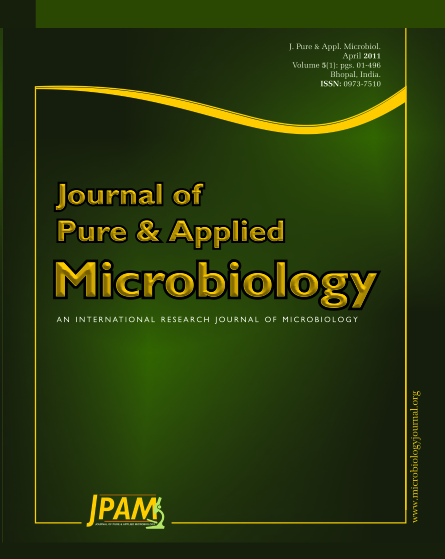Salmonella typhi and Salmonella paratyphi A were isolated from asymptomatic typhoid carriers in Ongole, India. The antibacterial activity of the isolates was assessed using commercially available antibiotics. Punica granatum was used as antibacterial agent in this study in order to come over the problem of antibiotic resistant. Punica granatum (Pomegranate) bark was collected from Kolli Hills, Tamil Nadu, India. Pomegranate extract was obtained by Soxhlet method. The bark extract of pomegranate prepared using acetone; isopropanol and hexane possess antibacterial activity against S. typhi and S. paratyphi A. Among these three solvents, acetone and hexane extracts showed better efficiency than isopropanol extract.
Antibiotics, Pomegranate, Antibacterial activity, Bark extracts, Asymptomatic typhoid carriers
© The Author(s) 2011. Open Access. This article is distributed under the terms of the Creative Commons Attribution 4.0 International License which permits unrestricted use, sharing, distribution, and reproduction in any medium, provided you give appropriate credit to the original author(s) and the source, provide a link to the Creative Commons license, and indicate if changes were made.


